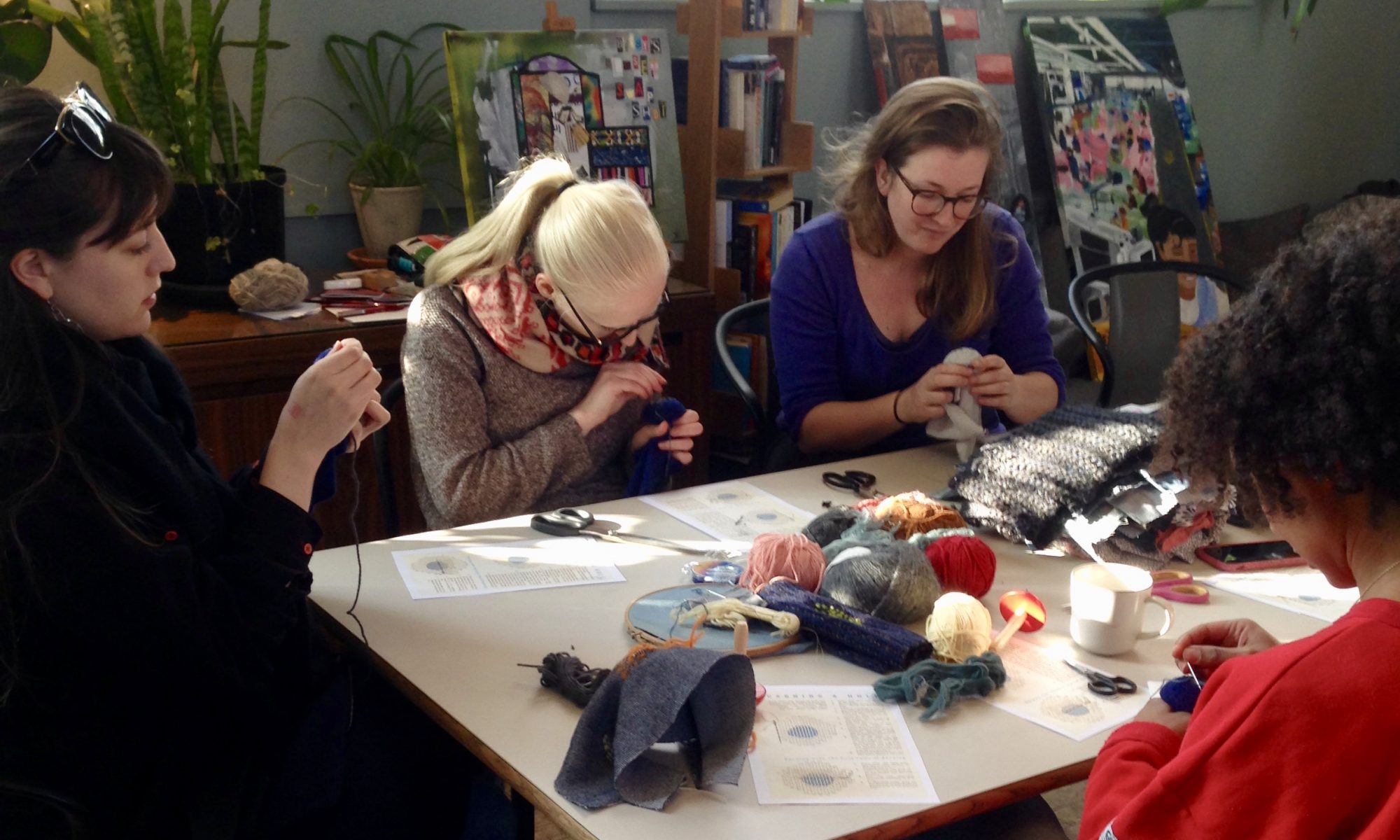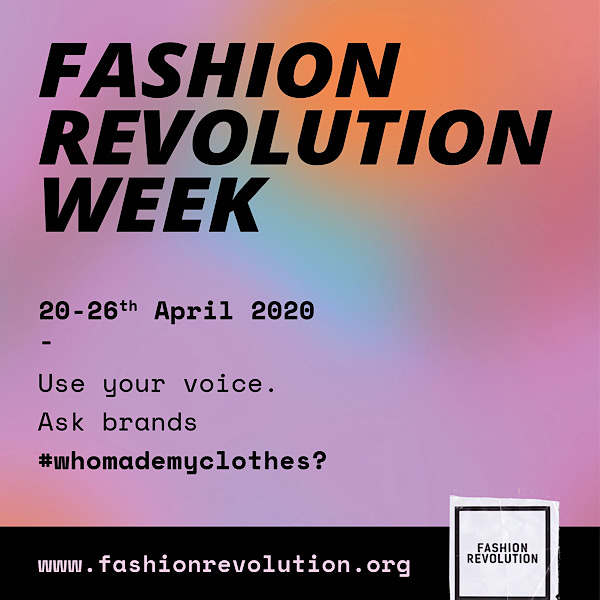
Monday is the start of Fashion Revolution Week. The seventh year in which the charity ask us to challenge our favourite fashion brands with the question #whomademyclothes? Fashion Revolution was established in 2013 a year after the Rana Plaza disaster that killed 1138 garment workers in Bangladesh. Since then charity have been campaigning globally against the human and environmental consequences of the fashion industry. Encouraging brands to change their practices to a more transparent and circular model.
Our original plan was to host a variety of clothes mending workshops but the pandemic put a stop to this. We took comfort from the below quote, taken from a Fashion Revolution newsletter we received soon after we were asked to stay in our homes to protect lives.
The coronavirus pandemic will lead to a massive behavioural shift and an inevitable slowing down of consumption. As we always say, the most sustainable clothes are the ones already in our wardrobes so we can start, as so many of us already are, by looking after the clothes we have, sewing on buttons, repairing hems, darning holes.…
Fashion Revolution, March 2020
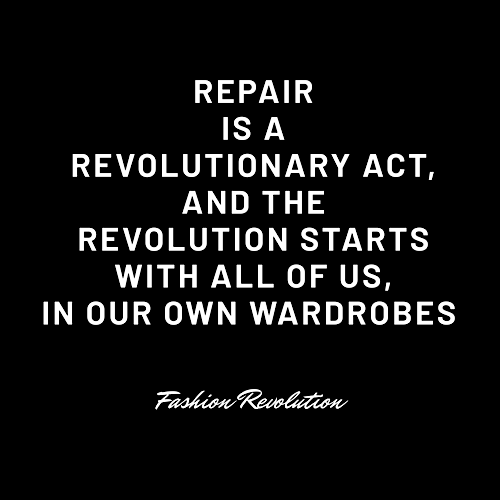
Fast Fashion Therapy was created as a response to another overwhelming problem, climate change and the lack of sustainability in the fashion industry. We have taken on the challenge set by Fashion Revolution and have launched our workshops and repair cafes online via interactive call and video tutorials. Now, more than ever it is important to question fashion brands on their practices, here is how you can get involved:
Five Ways to Be Part of Fashion Revolution Week
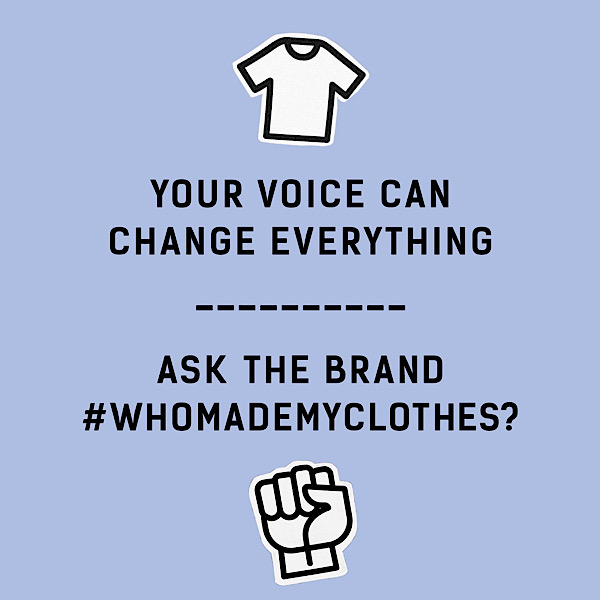
1) Become an activist: Choose your favourite piece of clothing. Text, email and write a letter to the brand on the label using the hashtag #whomademyclothes? – find more tips and resources on how to approach the fashion brand effectively on Fashion Revolution’s website. Including downloadable posters and kits. Don’t give up, keep contacting the brand until you get an answer. Keep the message positive and professional.
2) Learn how clothes are made: Creating a 3D garment from a flat piece of fabric is no mean feat. Understanding the construction of clothes enables us to value them and appreciate that clothes shouldn’t be cheap. We respect the skill required and can campaign for garment workers to be paid a living wage. We are not suggesting everyone makes their own clothes (although it is fun!) but how about watching The Great British Sewing Bee? Starting next week, watch one episode to appreciate how difficult it is to make a simple garment. Judge Patrick Grant hosts a BBC Radio documentary ‘Making Fashion Sustainable‘, which is a good introduction to the complexity of fashion supply chains.
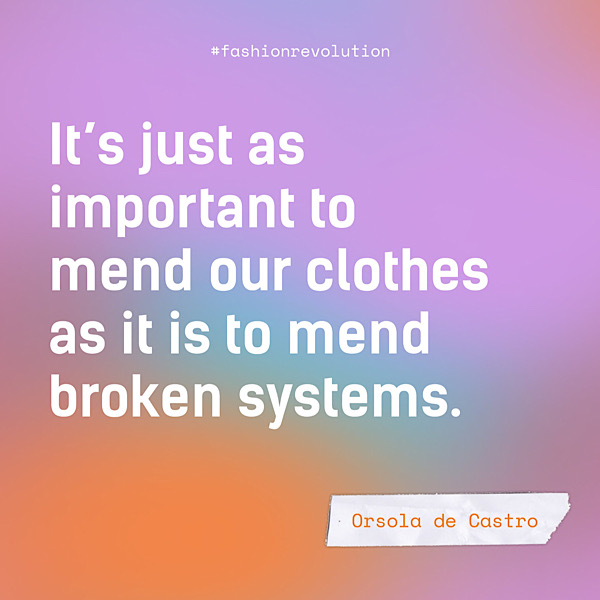
3) Mend your clothes: Go through your wardrobe and pull out the items you are not wearing because they need mending. Or maybe they don’t fit correctly and need altering? It is time to start tackling that pile of mending. We have ‘how to’ videos on this site to help you mend your clothes. New tutorials are posted every week. Or if you need some one-to-one help we are running 1:1 appointments for a virtual repair cafe. £2.50 from the ticket price will be donated to Fashion Revolution, Refuge and The Trussell Trust.
4) Take part in a virtual event: Next week, sustainable fashion companies will come together to debate the effects of the fast fashion industry on climate change and modern slavery. There are hundreds of events taking place around the world. We are joining Ethical Brands for Fashion Revolution (a week long event) and Fashion Question Time on 24th April. Search ‘Fashion Revolution’ in Eventbrite for the full list of events.
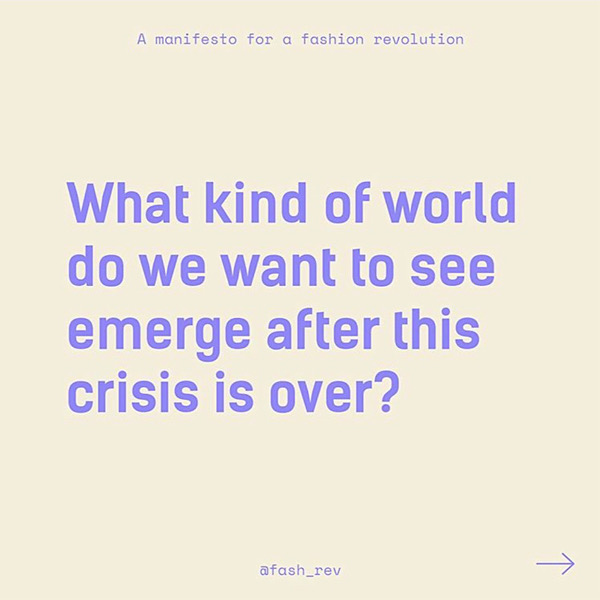
5) Consider the future: This is our opportunity to make a change. We all need to consume less to prevent further climate change. Yet millions of garment workers have lost their jobs due to orders from retailers being cancelled due to Covid-19. Fashion Revolution state: ‘If we do nothing, the fashion industry will simply return to business as usual when this is all over. Instead, let’s come together as a revolution and build a new system that values the wellbeing of people and planet over profit.’ How will your buying patterns change? Jen Gale at Sustainable(ish) recommends we become ‘conscious consumers’. Lauren Bravo has lots of practical tips in her book, How to Break up with Fast Fashion.
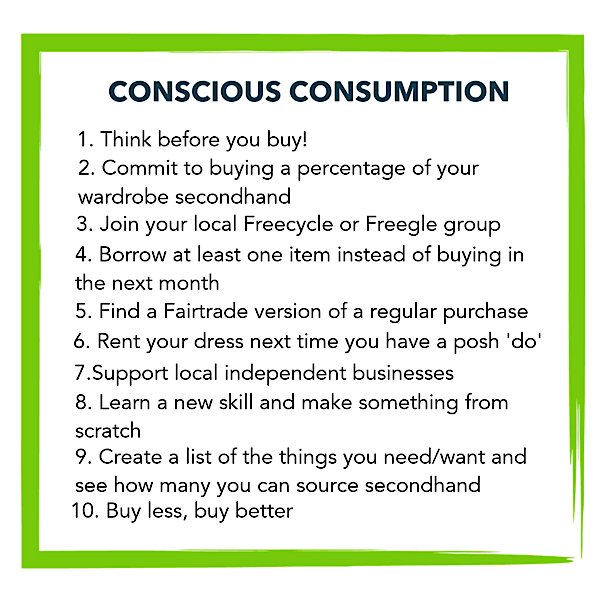
Let us know how you are getting involved in Fashion Revolution Week. Did you get an answer to #whomademyclothes? We would love to know, contact us on email or social media @fastfashiontherapy
